Can THCA Flower Help with Depression? What the scientific Research Shows
Depression affects over 280 million people worldwide, making it the leading cause of disability globally according to the World Health Organization. Despite decades of pharmaceutical advancement, conventional antidepressants help only 60-70% of patients, often requiring weeks to show effects and carrying significant side effects including weight gain, sexual dysfunction, and emotional blunting. This treatment gap has sparked interest in alternative approaches, with THCA depression research emerging as a promising area of investigation.
THCA (tetrahydrocannabinolic acid), the non-psychoactive precursor to THC found in raw cannabis, is gaining attention for its potential mood-regulating properties. Unlike traditional antidepressants that target single neurotransmitter systems, THCA flower depression research suggests this compound may address multiple pathways involved in mood disorders, offering a more holistic approach to mental health support.
As we explore the science behind THCA mood benefits, it's important to understand that depression is a complex medical condition requiring professional treatment. However, emerging research indicates THCA may serve as a valuable adjunct therapy when used under proper medical supervision.
Understanding Depression: Beyond Chemical Imbalances
Types of Depression and Their Complexity
Depression isn't a single condition but encompasses various disorders with distinct characteristics. Major depressive disorder (MDD) affects approximately 8.5% of U.S. adults annually, while persistent depressive disorder (dysthymia) creates long-term, chronic symptoms. Seasonal affective disorder, bipolar depression, and treatment-resistant depression each present unique challenges requiring tailored approaches.
The traditional "chemical imbalance" theory of depression, while useful, oversimplifies the condition. Modern neuroscience reveals depression involves complex interactions between neurotransmitter systems, inflammatory processes, stress hormones, and neuroplasticity mechanisms. This complexity explains why single-target medications often provide incomplete relief.
The Neurotransmitter Network
Serotonin, dopamine, and norepinephrine form the classical neurotransmitter triad associated with mood regulation. However, depression also involves GABA (the brain's primary inhibitory neurotransmitter), glutamate (the primary excitatory neurotransmitter), and the endocannabinoid system. This broader understanding opens doors for natural depression treatment THCA approaches that address multiple systems simultaneously.
Inflammatory Models of Depression
Recent research highlights inflammation's role in depression, with elevated inflammatory markers found in 30-50% of depressed patients. Chronic inflammation affects neurotransmitter synthesis, reduces neuroplasticity, and impairs stress response systems. This inflammatory model provides a framework for understanding how THCA antidepressant properties might work through anti-inflammatory mechanisms.
Treatment-Resistant Depression Challenges
Approximately 30% of patients don't respond adequately to first-line antidepressants, and many experience intolerable side effects. Treatment-resistant depression often requires combination therapies, higher doses, or alternative approaches. This population represents a significant unmet medical need where does THCA flower help with depression becomes a particularly relevant question.
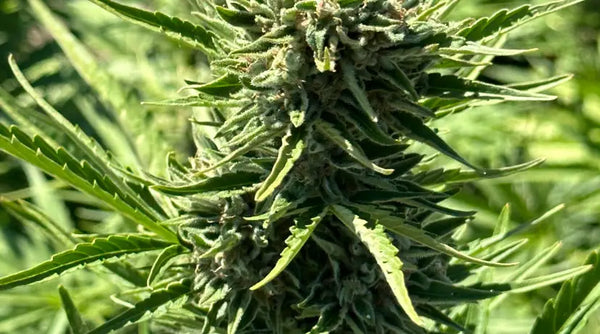
THCA and Mood Regulation: Mechanisms of Action
Serotonin Pathway Interactions
THCA's potential antidepressant effects may involve indirect serotonin pathway modulation. While THCA doesn't directly bind to serotonin receptors like SSRIs, preclinical studies suggest it may influence serotonin availability through multiple mechanisms. The endocannabinoid system, which THCA interacts with, has extensive connections to serotonergic neurons throughout the brain.
Research indicates that endocannabinoid signaling can modulate serotonin release in key brain regions associated with mood regulation, including the prefrontal cortex, hippocampus, and raphe nuclei. This suggests THCA vs SSRIs comparisons may reveal complementary rather than competing mechanisms, potentially allowing for synergistic effects when used together under medical supervision.
Neuroinflammation Reduction
One of THCA's most promising characteristics is its potent anti-inflammatory properties. Unlike THC, which requires decarboxylation to become psychoactive, THCA maintains its anti-inflammatory effects in its raw form. Studies demonstrate THCA's ability to reduce inflammatory cytokines including TNF-α, IL-1β, and IL-6 – the same inflammatory markers elevated in depression.
This anti-inflammatory action may address depression's underlying pathophysiology rather than just symptoms. By reducing neuroinflammation, THCA flower depression treatment could potentially restore normal neurotransmitter function, improve neuroplasticity, and support healthy stress responses.
Neuroprotective Effects
Depression is associated with reduced neuroplasticity, decreased BDNF (brain-derived neurotrophic factor), and even structural brain changes in severe cases. THCA demonstrates neuroprotective properties that may counteract these harmful effects. Research suggests THCA can protect neurons from oxidative stress, support mitochondrial function, and potentially promote neurogenesis.
These neuroprotective mechanisms could explain why some patients report sustained THCA mood benefits even after discontinuing use. By supporting brain health at the cellular level, THCA may help restore the brain's natural resilience and mood-regulating capacity.
Stress Hormone Modulation
Chronic stress and elevated cortisol levels are both causes and consequences of depression, creating a self-perpetuating cycle. The endocannabinoid system plays a crucial role in stress response regulation, and THCA's interaction with this system may help normalize the hypothalamic-pituitary-adrenal (HPA) axis.
Studies suggest cannabinoid compounds can reduce cortisol levels and improve stress resilience. For individuals with THCA for seasonal depression, this stress-modulating effect could be particularly beneficial, as seasonal mood changes often involve disrupted circadian rhythms and stress hormone imbalances.
Research Evidence: What Studies Tell Us
Preclinical Studies and Mechanisms
While human studies on THCA depression are limited, preclinical research provides valuable insights into potential mechanisms. Animal studies using cannabinoid compounds similar to THCA show promising antidepressant-like effects in standard behavioral models such as the forced swim test and tail suspension test.
A 2018 study published in the Journal of Affective Disorders found that cannabinoid receptor activation in the hippocampus produced antidepressant-like effects through increased BDNF expression. While this study didn't specifically examine THCA, it demonstrates how cannabinoid compounds can influence key pathways involved in depression recovery.
Animal Behavior Models
Rodent models of depression consistently show that endocannabinoid system modulation can improve mood-related behaviors. Studies using chronic unpredictable stress models – considered highly relevant to human depression – demonstrate that cannabinoid treatments can reverse stress-induced behavioral changes and normalize neurochemical imbalances.
These findings suggest natural depression treatment THCA approaches may be most effective for stress-related depression subtypes. However, translating animal model results to human depression requires careful consideration of species differences and model limitations.
Human Observational Data
While controlled clinical trials of THCA for depression are lacking, observational studies and patient registries provide preliminary human data. A 2020 survey of medical cannabis patients found that 58% reported mood improvements, with many specifically noting benefits from high-THCA preparations.
Cannabis patient registries consistently show that individuals using cannabinoid therapies for various conditions often report secondary mental health benefits. However, these observational studies cannot establish causation and may be influenced by placebo effects, expectation bias, and self-selection factors.
Research Limitations and Gaps
The current evidence base for THCA antidepressant effects has several important limitations. Most research focuses on THC or CBD rather than THCA specifically. The few studies examining THCA primarily investigate its anti-inflammatory and neuroprotective properties rather than mood effects directly.
Additionally, the legal status of cannabis compounds has historically limited research opportunities. As regulations evolve, we can expect more rigorous clinical trials examining does THCA flower help with depression in controlled settings with standardized preparations and objective outcome measures.
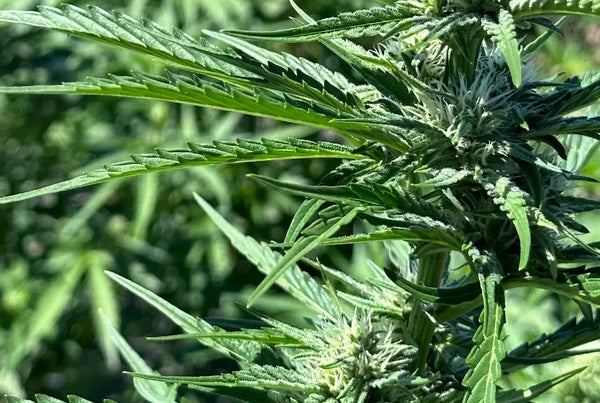
Patient Reports and Case Studies: Real-World Experiences
Self-Reported Mood Improvements
Patients using THCA flower depression treatments frequently report gradual mood improvements that differ from traditional antidepressant experiences. Unlike SSRIs, which may cause initial activation or emotional numbing, THCA users often describe a gentle lifting of mood that preserves emotional range and authenticity.
Sarah, a 34-year-old teacher with treatment-resistant depression, shared her experience: "After trying five different antidepressants over three years, I was skeptical about anything working. My psychiatrist suggested we explore THCA as an adjunct to my existing therapy. Within two weeks, I noticed I wasn't waking up with that heavy, hopeless feeling. The change was subtle but consistent."
Many patients report that THCA mood benefits feel more natural and sustainable compared to pharmaceutical interventions. This may reflect THCA's multi-target approach, addressing inflammation, stress, and neurotransmitter function simultaneously rather than forcing dramatic neurochemical changes.
Energy Level Changes
Depression often involves profound fatigue and decreased energy, symptoms that traditional antidepressants may not adequately address. Patients using THCA frequently report improved energy levels without the jittery stimulation associated with some antidepressants or caffeine.
Mark, a 45-year-old engineer with dysthymia, noted: "The fatigue was almost worse than the mood symptoms. I could barely function by afternoon. With THCA, I have steady energy throughout the day. It's not a boost like coffee – it's more like my natural energy is restored."
This energy improvement may relate to THCA's anti-inflammatory effects, as chronic inflammation is a major contributor to depression-related fatigue. By reducing inflammatory burden, THCA for seasonal depression and other depression subtypes may help restore normal energy metabolism.
Motivation and Drive Effects
Anhedonia – the inability to experience pleasure or motivation – is a core depression symptom that proves particularly challenging to treat. Traditional antidepressants may improve mood without fully restoring motivation and drive. THCA users frequently report renewed interest in activities and improved motivation for daily tasks.
Jessica, a 28-year-old artist, described her experience: "I'd lost all interest in painting, which was devastating. Nothing felt worth doing. After starting THCA treatment, I gradually felt drawn back to my easel. It wasn't forced – the desire just naturally returned."
These motivation improvements may reflect THCA's interaction with dopamine pathways, which are crucial for reward processing and goal-directed behavior. While more research is needed, these patient reports suggest natural depression treatment THCA may address aspects of depression that conventional treatments often miss.
Quality of Life Impacts
Beyond specific symptom improvements, patients frequently report enhanced overall quality of life with THCA treatment. This includes better sleep quality, improved appetite regulation, reduced anxiety, and enhanced social functioning. These holistic improvements may reflect THCA's broad therapeutic profile and its ability to address multiple depression-related dysfunctions simultaneously.
Long-term users often emphasize that THCA flower depression treatment feels sustainable and doesn't interfere with their authentic emotional experiences. Unlike some antidepressants that may blunt emotional responses, THCA appears to preserve emotional range while reducing depression severity.
Integration with Mental Health Care
Working with Psychiatrists
Successful THCA depression treatment requires collaboration with qualified mental health professionals. Psychiatrists increasingly recognize cannabinoid therapies as legitimate treatment options, particularly for treatment-resistant cases or patients experiencing intolerable medication side effects.
Dr. Emily Rodriguez, a psychiatrist specializing in integrative mental health, explains: "I've seen remarkable results when THCA is used as part of a comprehensive treatment plan. The key is careful monitoring, gradual titration, and maintaining all proven interventions while adding THCA as an adjunct."
Patients should never discontinue prescribed psychiatric medications without medical supervision. THCA vs SSRIs isn't necessarily an either-or choice – many patients benefit from combination approaches that leverage the strengths of both therapeutic modalities.
Medication Interactions
While THCA is generally well-tolerated, potential interactions with psychiatric medications require careful consideration. THCA may influence liver enzymes responsible for metabolizing certain antidepressants, potentially altering their effectiveness or side effect profiles.
Common psychiatric medications that may interact with cannabinoids include:
- Selective serotonin reuptake inhibitors (SSRIs)
- Tricyclic antidepressants
- Monoamine oxidase inhibitors (MAOIs)
- Benzodiazepines
- Mood stabilizers
Healthcare providers should monitor patients closely when introducing THCA flower depression treatment alongside existing medications, adjusting doses as needed to maintain therapeutic efficacy while minimizing adverse effects.
Therapy Combination Benefits
THCA treatment appears to enhance the effectiveness of psychotherapy for many patients. The compound's anxiolytic and mood-stabilizing effects may help patients engage more fully in therapy sessions and practice coping skills more effectively.
Cognitive-behavioral therapy (CBT), mindfulness-based interventions, and trauma-focused therapies may all benefit from THCA mood benefits. Patients report feeling more emotionally available for therapeutic work and better able to implement behavioral changes when depression symptoms are reduced.
Monitoring Protocols
Effective integration of natural depression treatment THCA requires systematic monitoring protocols. These should include regular mood assessments, side effect evaluations, and objective measures of functional improvement. Standardized depression rating scales like the PHQ-9 or Hamilton Depression Rating Scale can track progress quantitatively.
Healthcare providers should also monitor for potential negative effects, including increased anxiety in susceptible individuals, changes in sleep patterns, or any worsening of suicidal ideation. Regular follow-up appointments ensure that THCA treatment remains beneficial and safe.
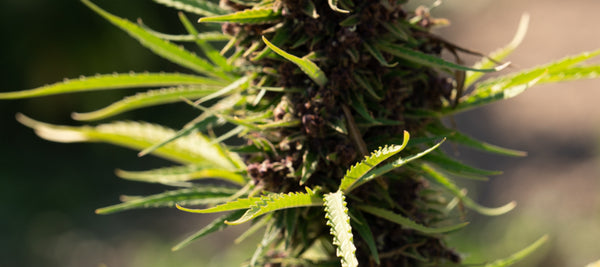
Risk Considerations and Safety Protocols
Suicide Risk Factors
Depression carries inherent suicide risk, and any new treatment must be evaluated for its potential impact on suicidal ideation. While THCA antidepressant effects may ultimately reduce suicide risk by improving mood, the initial treatment period requires careful monitoring.
Some patients experience temporary increases in anxiety or emotional instability when beginning cannabinoid treatments. Healthcare providers should assess suicide risk at baseline and monitor closely during the first weeks of THCA flower depression treatment, particularly in patients with previous suicide attempts or active suicidal thoughts.
Medication Interactions and Contraindications
Beyond psychiatric medications, THCA may interact with other drugs including blood thinners, seizure medications, and certain heart medications. Patients should provide complete medication lists to their healthcare providers, including over-the-counter supplements and herbal products.
Certain medical conditions may contraindicate does THCA flower help with depression treatment, including severe cardiovascular disease, active substance use disorders, or certain psychiatric conditions like bipolar disorder during manic episodes. Individual risk-benefit assessments are essential.
When THCA Isn't Appropriate
Not all patients are suitable candidates for THCA for seasonal depression or other mood applications. Contraindications may include:
- Pregnancy or breastfeeding
- History of cannabis-induced psychosis
- Severe anxiety disorders that worsen with cannabinoids
- Occupations requiring drug testing
- Legal concerns in restrictive jurisdictions
Healthcare providers should carefully screen patients and consider alternative treatments when THCA isn't appropriate or safe.
Crisis Resources and Emergency Protocols
Patients using any depression treatment, including natural depression treatment THCA, should have access to crisis resources. These include:
- National Suicide Prevention Lifeline: 988
- Crisis Text Line: Text HOME to 741741
- Emergency services: 911
- Local mental health crisis centers
Treatment plans should include clear instructions for seeking emergency help if depression symptoms worsen or suicidal thoughts emerge.
Frequently Asked Questions
Q: How quickly does THCA work for depression compared to traditional antidepressants? A: THCA depression effects may be noticeable within days to weeks, faster than traditional antidepressants which often require 4-6 weeks. However, individual responses vary significantly, and some patients may need several weeks to experience full benefits.
Q: Can I replace my antidepressant with THCA flower? A: Never discontinue prescribed psychiatric medications without medical supervision. THCA vs SSRIs isn't necessarily a replacement scenario – many patients benefit from combination approaches. Work with your healthcare provider to develop a safe transition plan if medication changes are appropriate.
Q: What's the best dosage of THCA flower for depression? A: THCA flower depression dosing is highly individual and should be determined with healthcare provider guidance. Most patients start with low doses (5-10mg THCA) and gradually increase based on response and tolerance. Optimal dosing varies based on individual factors including body weight, metabolism, and symptom severity.
Q: Are there side effects of using THCA for mood disorders? A: THCA mood benefits generally come with minimal side effects, but some patients may experience mild anxiety, changes in appetite, or sleep pattern alterations. Serious side effects are rare, but any concerning symptoms should be reported to healthcare providers immediately.
Q: Does THCA work for seasonal depression specifically? A: THCA for seasonal depression shows promise based on its anti-inflammatory and mood-regulating properties. Seasonal affective disorder often involves disrupted circadian rhythms and inflammation, both of which THCA may help address. However, light therapy and other proven treatments should remain primary interventions.
Q: Is THCA legal for depression treatment? A: Legal status varies by jurisdiction. Many states with medical cannabis programs include depression or PTSD as qualifying conditions. Natural depression treatment THCA legality depends on local laws and whether you're working with licensed medical cannabis providers.
Q: How do I find quality THCA flower products? A: Source THCA flower depression products from licensed dispensaries or reputable suppliers who provide third-party lab testing results. Look for products that specify THCA content, are free from pesticides and heavy metals, and come from organic cultivation practices. Oregon Hemp Flower offers high-quality, lab-tested THCA flower products with detailed potency information.
Conclusion: A Promising but Complex Therapeutic Landscape
Depression remains one of modern medicine's most challenging conditions, affecting millions worldwide with limited treatment options for many patients. While THCA depression research is still in its early stages, the available evidence suggests significant therapeutic potential for this non-psychoactive cannabinoid compound.
The multi-target approach of THCA flower depression treatment – addressing inflammation, neurotransmitter function, stress response, and neuroprotection simultaneously – offers advantages over single-mechanism interventions. Patient reports consistently describe gentle but meaningful improvements in mood, energy, and quality of life, often with fewer side effects than traditional medications.
However, it's crucial to emphasize that depression is a serious medical condition requiring professional treatment. THCA antidepressant effects should be viewed as potential adjunct therapy rather than replacement for proven treatments like psychotherapy and established medications. The integration of natural depression treatment THCA approaches requires careful medical supervision, particularly given potential drug interactions and individual risk factors.
As research continues to evolve, we can expect clearer guidelines for THCA vs SSRIs applications, optimal dosing protocols, and patient selection criteria. For now, patients interested in exploring does THCA flower help with depression should work closely with knowledgeable healthcare providers who can assess individual suitability and monitor treatment responses.
The future of depression treatment likely involves personalized, multi-modal approaches that may include both conventional and cannabinoid-based interventions. THCA mood benefits represent one promising piece of this complex therapeutic puzzle, offering hope for patients who haven't found adequate relief with current treatments. Whether addressing THCA for seasonal depression or other mood disorders, this compound's unique properties warrant continued research and clinical attention.
For those considering THCA flower depression treatment, remember that recovery is possible, help is available, and you don't have to face depression alone. Working with qualified healthcare providers and accessing high-quality products from reputable sources like Oregon Hemp Flower's THCA collection can help ensure safe, effective treatment approaches that support your journey toward better mental health.

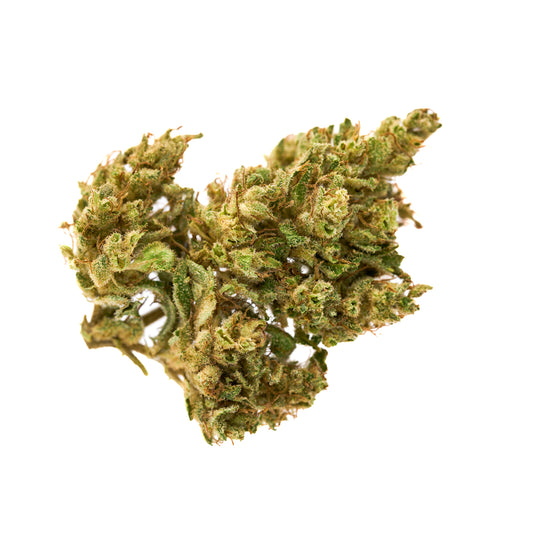
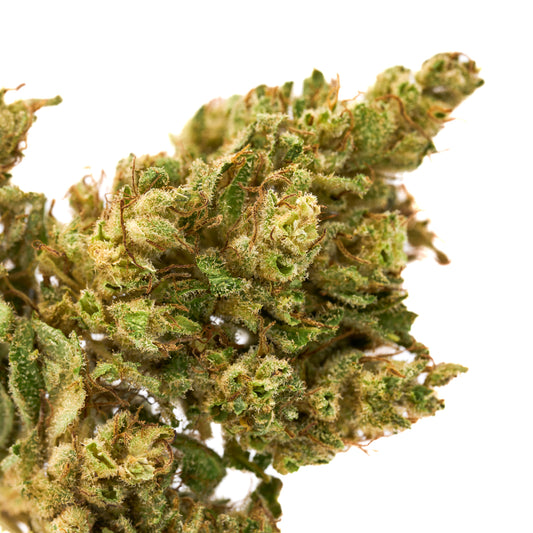
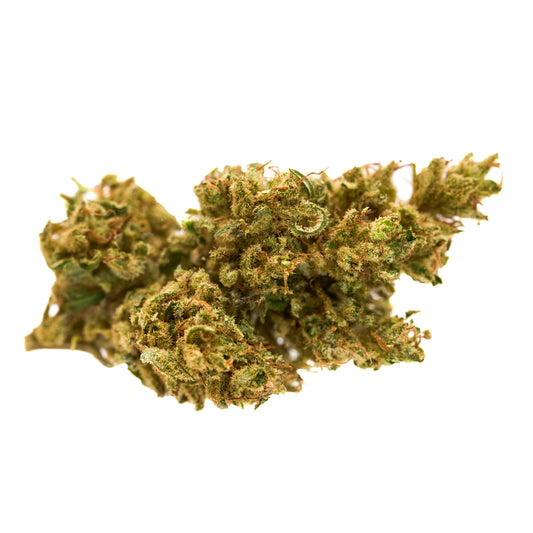
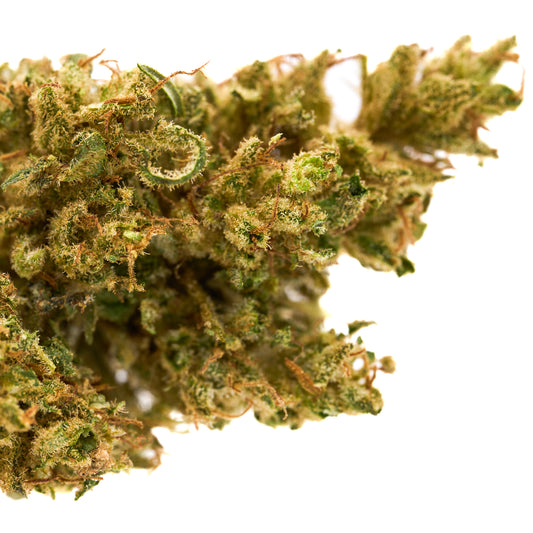
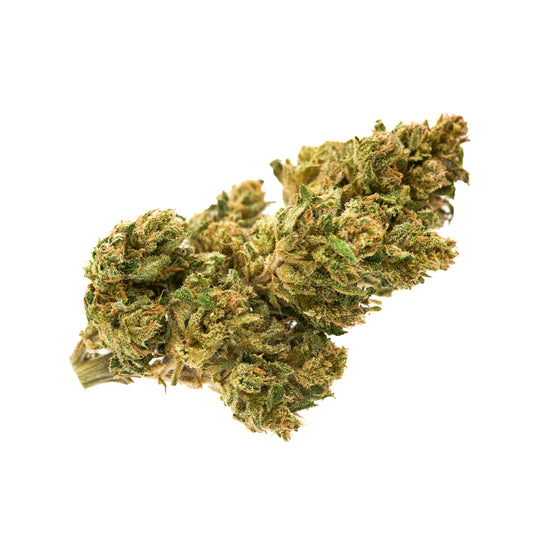
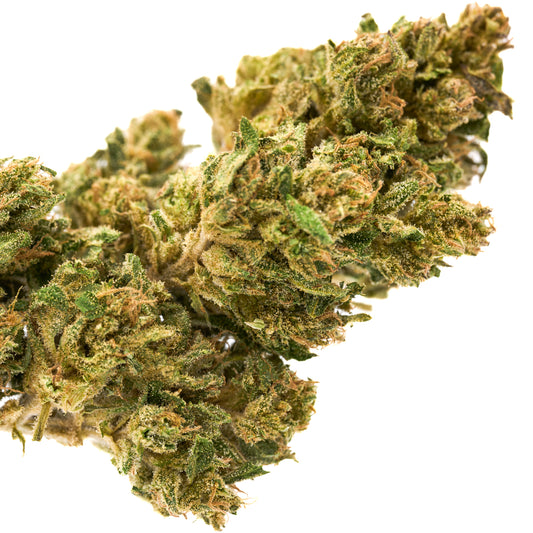



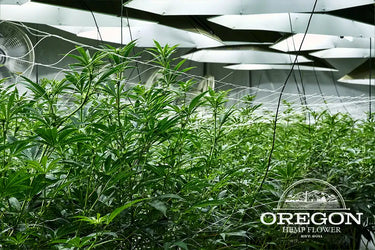

Leave a comment
Please note, comments need to be approved before they are published.